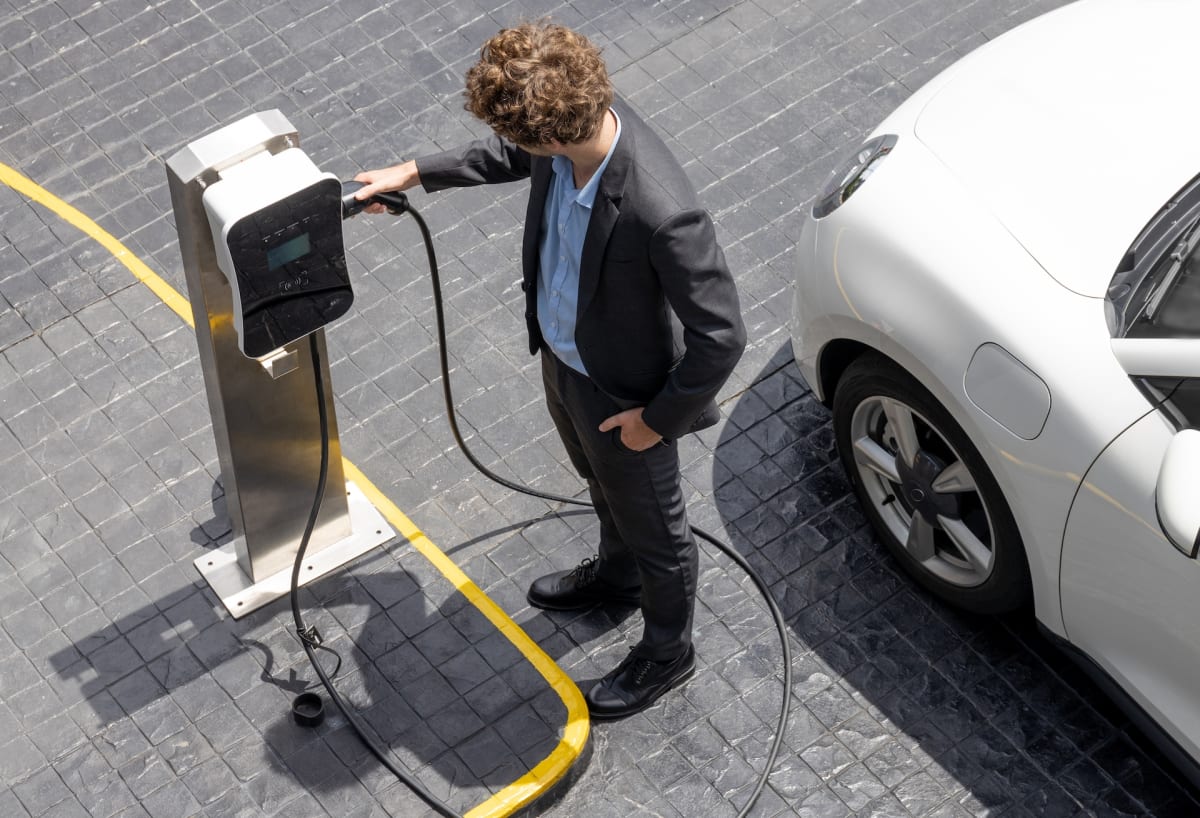
Electric cars seem like they could save drivers a lot of money, but they’re not affordable for most people.
EVs were about one-third more expensive than other vehicles between 2020 and 2022, according to experts at the the Chicago Fed’s 2023 Automotive Insights Symposium. Considering the total cost of ownership, including financing, maintenance, fuel and insurance, EVs can be cheaper than gas cars after about seven years, they said.
Prices are trending downward a bit. The average price paid for a new non-luxury vehicle in February 2023 was $44,697, down from a peak of almost $49,000, while the average new EV sold for $58,385, down from around $65,000, according to Kelley Blue Book estimates. The drop in EV pricing was driven by significant price cuts from Tesla (TSLA), which commands roughly two-thirds of the EV market, KBB reports.
But financing has gotten expensive with higher interest rates -- the average car payment in January, KBB said, was a whopping $780 a month. That’s a lot for the median U.S. household income of around $70,784.
A $7,500 tax credit can make a big dent in the price of a car.
When Congress passed the the Inflation Reduction Act last year, it made big changes to the incentives for electric, hybrid and plug-in hybrid vehicles. Now called the Clean Vehicle Credit, it added a new requirement for vehicle assembly in North America. It also now includes income thresholds for buyers and price caps on the vehicles purchased.
As a result, there was a big confusing shuffle in the past few months as to which EVs qualified for tax credits and which buyers could get the credit. Automakers are switching to U.S. factories to manufacture more EVs and their batteries to fulfill the North America requirement, while mining companies are racing to expand lithium production for those batteries, according to the New York Times.
The bottom line is that the U.S. Dept. of Energy now lists the qualifying vehicles and their tax credits and price caps.
The income limits include a modified adjusted gross income of $150,000 for a single filer or $300,000 for married filing jointly, according to this explainer from NerdWallet, which details some of the finer points of the Clean Vehicle Credit.
A useful new change to the law is that you can get the tax credit applied as a discount at the point of sale, instead of having to front the money and wait until you file taxes to get your $7,500 back.
Because of the new law, there are a lot of cars out there that don't (yet) qualify, and several that only qualify for a partial tax credit. Here are all the vehicles that currently qualify for federal tax incentives, plus price caps and starting prices, according to the U.S. Dept. of Energy.
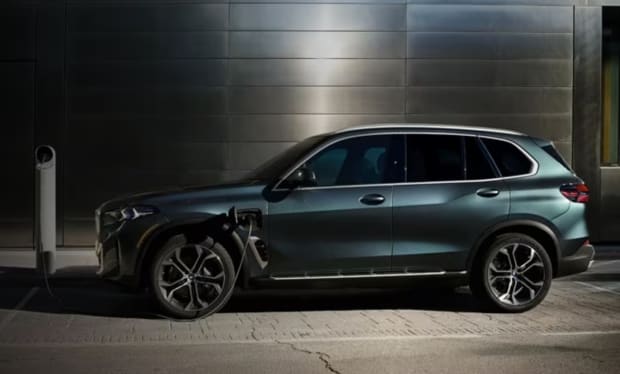
BMW X5 xDrive50e, PHEV
- Year: 2024
- Tax credit: $3,750
- Price cap: $80,000
- Starts at: $72,500
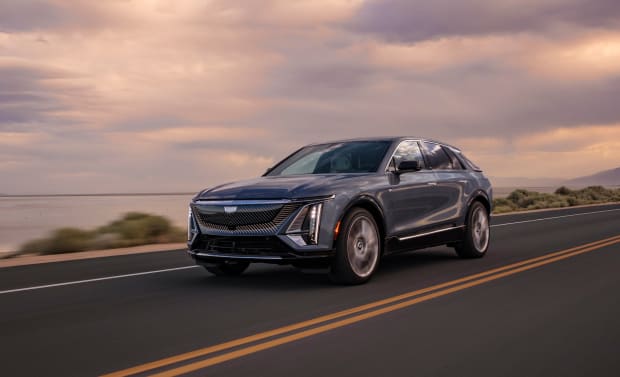
Cadillac Lyriq EV
- Years: 2023-2024
- Tax credit: $7,500
- Price cap: $80,000
- Starts at: $63,190
The tax credit also applies to a ’22-’24 Cadillac Lyriq placed into service after Dec. 31, 2022, and before April 18, 2023.
Cadillac
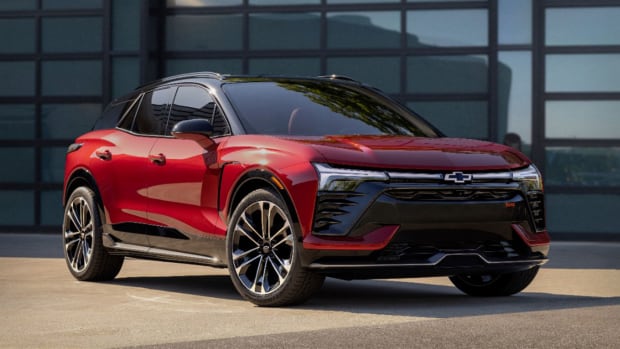
Chevrolet Blazer EV
- Year: 2024
- Tax credit: $7,500
- Price cap: $80,000
- Starts at: $44,995 (estimated)
Chevrolet
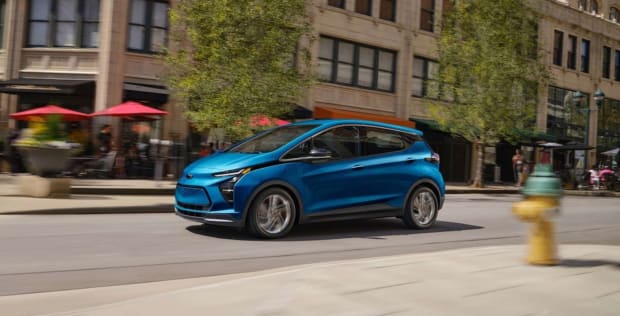
Chevrolet Bolt EV
- Years: 2022-2023
- Tax credit: $7,500
- Price cap: $55,000
- Starts at: $27,495
(Also applies to a ’22-’24 Bolt placed into service after Dec. 31, 2022, and before April 18, 2023)
Chevrolet
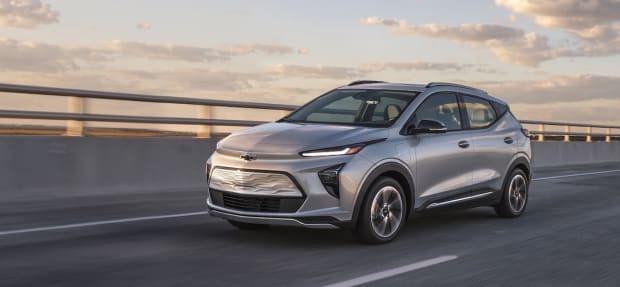
Chevrolet Bolt EUV
- Years: 2022-2023
- Tax credit: $7,500
- Price cap: $55,000
- Starts at: $27,800
(Also applies to a ’22-’24 Bolt EUV placed into service after Dec. 31, 2022, and before April 18, 2023)
Note that both Bolt models are being discontinued after this year.
Chevrolet
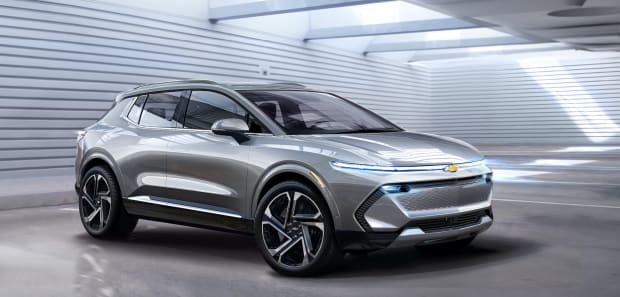
Chevrolet Equinox EV
- Year: 2024
- Tax credit: $7,500
- Price cap: $80,000
- Starts at: $30,000 (estimated)
Chevrolet

Chevrolet Silverado EV
- Year: 2024
- Tax credit: $7,500
- Price cap: $80,000
- Starts at: $39,900 (estimated)
(Also applies to a 2024 Silverado placed into service after Dec. 31, 2022, and before April 18, 2023)
Chevrolet
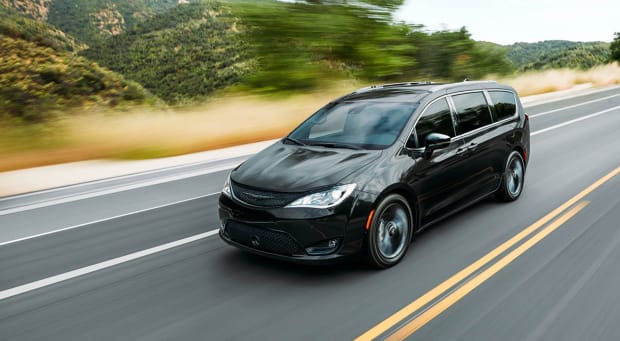
Chrysler Pacifica PHEV
- Years: 2022-2023
- Tax credit: $7,500
- Price cap: $80,000
- Starts at: $50,795
(Also applies to a ’22-’23 Pacifica placed into service after Dec. 31, 2022, and before April 18, 2023)
Chrysler

Ford E-Transit EV
- Years: 2022-2023
- Tax credit: $3,750
- Price cap: $80,000
- Starts at: $53,790 (cargo van)
A ’22-’23 E-transit placed into service after Dec. 31, 2022, and before April 18, 2023 qualifies for a tax credit of $7,500.
Ford

Ford Escape PHEV
- Years: 2022-2023
- Tax credit: $3,750
- Price cap: $80,000
- Starts at: $35,455
A 2022 Escape plug-in hybrid placed into service after Dec. 31, 2022, and before April 18, 2023 qualifies for a tax credit of $6,843.
Ford

Ford F-150 Lightning (extended or standard range battery) EV
- Years: 2022-2023
- Tax credit: $7,500
- Price cap: $80,000
- Starts at: $55,974
(Also applies to these vehicles placed into service after Dec. 31, 2022, and before April 18, 2023)
Ford
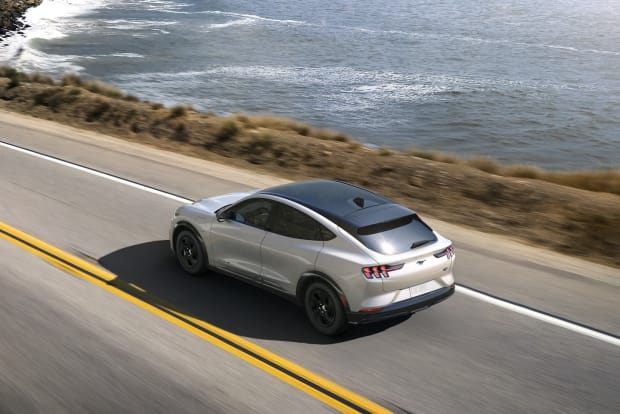
Ford Mustang Mach-E (extended or standard-range battery) EV
- Years: 2022-2023
- Tax credit: $3,750
- Price cap: $80,000
- Starts at: $42,995
A Mustang Mach-E placed into service after Dec. 31, 2022, and before April 18, 2023 qualifies for a tax credit of $7,500.
Ford

Jeep Grand Cherokee PHEV 4xe
- Years: 2022-2023
- Tax credit: $3,750
- Price cap: $80,000
- Starts at: $62,095 (2023)
A Jeep Grand Cherokee 4xe plug-in hybrid placed into service after Dec. 31, 2022, and before April 18, 2023 qualifies for a tax credit of $7,500.
Jeep

Jeep Wrangler 4xe PHEV
- Years: 2022-2023
- Tax credit: $3,750
- Price cap: $80,000
- Starts at: $54,765 (2023)
A Jeep Wrangler 4xe PHEV placed into service after Dec. 31, 2022, and before April 18, 2023 qualifies for a tax credit of $7,500.
Jeep

Lincoln Aviator Grand Touring PHEV
- Years: 2022-2023
- Tax credit: $7,500
- Price cap: $80,000
- Starts at: $70,190
An Aviator Grand Touring PHEV placed into service after Dec. 31, 2022, and before April 18, 2023 qualifies for a tax credit of $6,534.
Lincoln
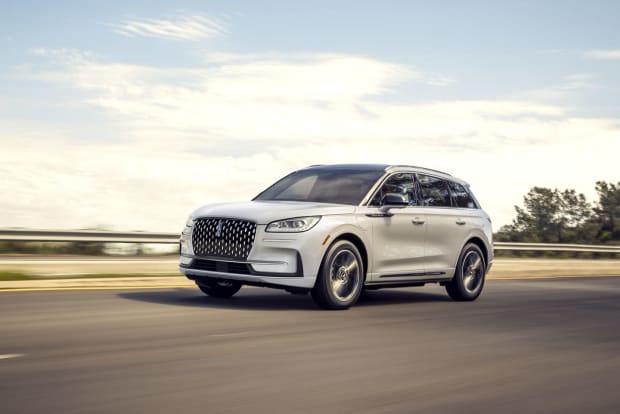
Lincoln Corsair Grand Touring PHEV
- Years: 2022-2023
- Tax credit: $3,750
- Price cap: $80,000
- Starts at: $53,385
A Corsair Grand Touring PHEV placed into service after Dec. 31, 2022, and before April 18, 2023 qualifies for a tax credit of $6,843
Lincoln

Rivian R1S EV
- Year: 2023
- Tax credit: $3,750
- Price cap: $80,000
- Starts at: $78,000
Rivian

Rivian R1T EV
- Year: 2023
- Tax credit: $3,750
- Price cap: $80,000
- Starts at: $73,000
Rivian
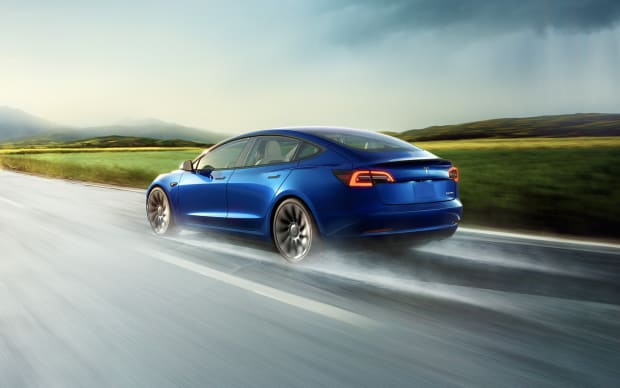
Tesla Model 3 Long Range All-Wheel Drive EV
- Years: 2023
- Tax credit: $7,500
- Price cap: $55,000
- Starts at: $47,240
Tesla Model 3 Performance EV
- Years: 2022-2023
- Tax credit: $7,500
- Price cap: $55,000
- Starts at: $53,240
These Teslas placed into service after Dec. 31, 2022, and before April 18, 2023 qualify for a tax credit of $7,500.
Tesla

Tesla Model 3 Standard Range Rear Wheel Drive EV
- Years: 2022-2023
- Tax credit: $7,500
- Price cap: $55,000
- Starts at: $40,240
These Teslas placed into service after Dec. 31, 2022, and before April 18, 2023 qualify for a tax credit of $7,500.
Shutterstock
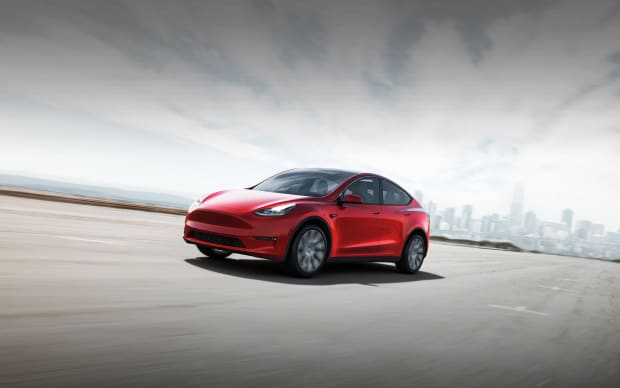
Tesla Model Y All-Wheel Drive EV
- Years: 2022-2023
- Tax credit: $7,500
- Price cap: $80,000
- Starts at: $47,240
These Tesla models placed into service after Dec. 31, 2022, and before April 18, 2023 also qualify for a tax credit of $7,500.
Tesla
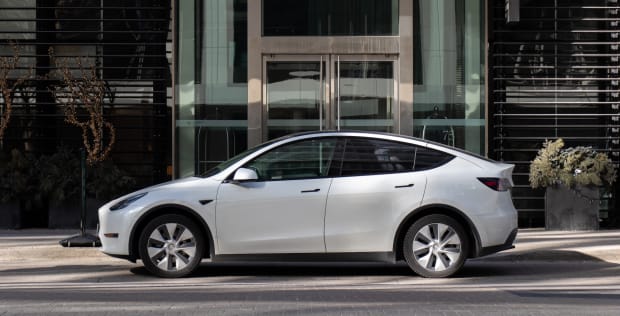
Tesla Model Y Long Range All-Wheel Drive EV
- Years: 2022-2023
- Tax credit: $7,500
- Price cap: $80,000
- Starts at: $50,240
Tesla Model Y Performance EV
- Years: 2022-2023
- Tax credit: $7,500
- Price cap: $80,000
- Starts at: $54,240
These Tesla models placed into service after Dec. 31, 2022, and before April 18, 2023 also qualify for a tax credit of $7,500.
Shutterstock
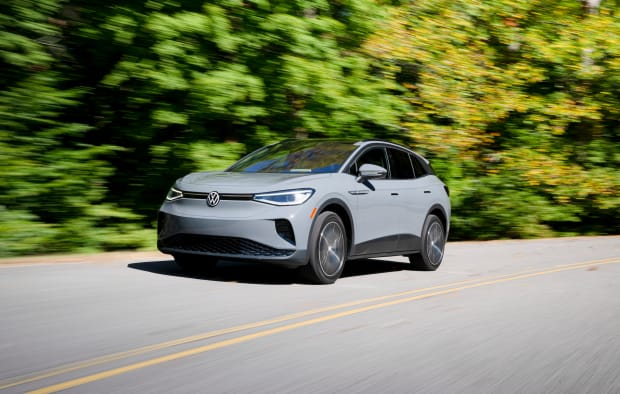
Volkswagen ID.4 AWD Pro, Pro S, Pro S Plus EV
- Year: 2023
- Tax credit: $7,500
- Price cap: $80,000
- Starts at: $47,795
These VW ID.4 models placed into service after Dec. 31, 2022, and before April 18, 2023 also qualify for a tax credit of $7,500.
Volkswagen
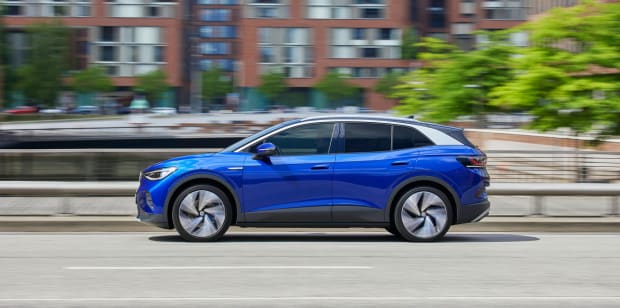
Volkswagen ID.4 Pro, Pro S, S, and Standard EV
- Year: 2023
- Tax credit: $7,500
- Price cap: $80,000
- Starts at: $38,995 for the lowest-price Standard
These VW ID.4 models placed into service after Dec. 31, 2022, and before April 18, 2023 also qualify for a tax credit of $7,500.
Learn more at FuelEconomy.gov. You can also search for state incentives in your state here.
The following vehicles only qualify for tax credits if placed into service after Dec. 31, 2022, and before April 18, 2023:
Volkswagen
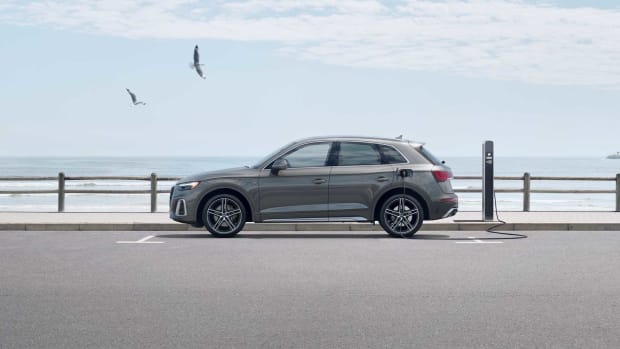
Audi Q5 TFSI e Quattro (PHEV)
- Year: 2023
- Tax credit: $7,500 (if placed into service after Dec. 31, 2022, and before April 18, 2023)
- Price cap: $80,000
Audi
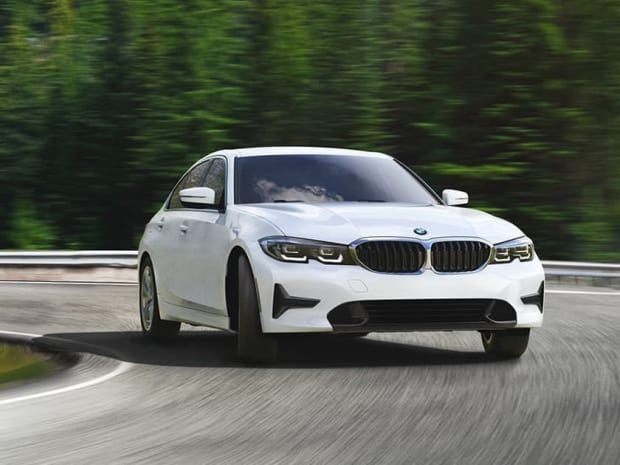
BMW 330e PHEV
- Years: 2021-2023
- Tax credit: $5,836 (if placed into service after Dec. 31, 2022, and before April 18, 2023)
- Price cap: $55,000
BMW
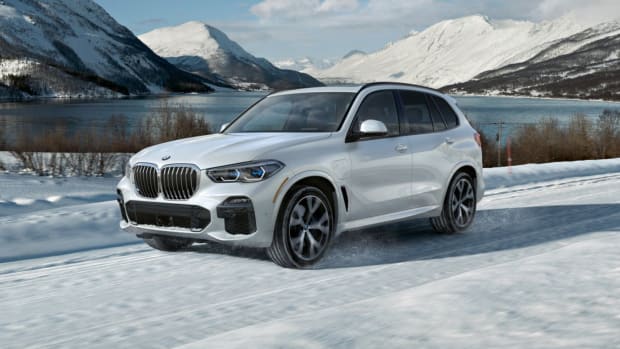
BMW X5 xDrive45e PHEV
- Years: 2021-2023
- Tax credit: $7,500 (if placed into service after Dec. 31, 2022, and before April 18, 2023)
- Price cap: $80,000
BMW

Genesis Electrified GV70 EV
- Years: 2023-2024
- Tax credit: $7,500 (if placed into service after Dec. 31, 2022, and before April 18, 2023)
- Price cap: $80,000
Genesis
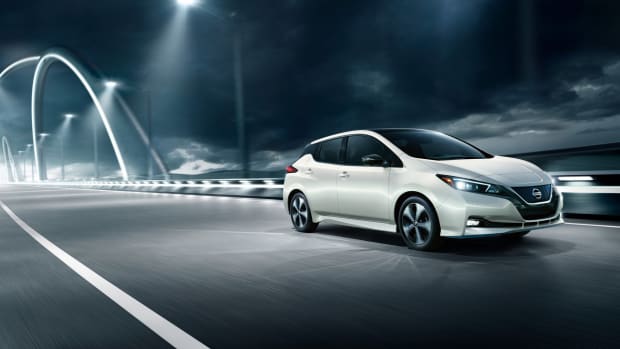
Nissan Leaf S EV
- Years: 2021-2023
- Tax credit: $7,500 (if placed into service after Dec. 31, 2022, and before April 18, 2023)
- Price cap: $55,000
Leaf S Plus or SL Plus, or SV EV
- Years: 2021-2022
- Tax credit: $7,500 (if placed into service after Dec. 31, 2022, and before April 18, 2023)
- Price cap: $55,000
Leaf SV Plus EV
- Years: 2021-2023
- Tax credit: $7,500 (if placed into service after Dec. 31, 2022, and before April 18, 2023)
- Price cap: $55,000
Nissan

Volvo S60, S60 Extended Range PHEV
- Year: 2022
- Tax credit: $5,419 (if placed into service after Dec. 31, 2022, and before April 18, 2023)
- Price cap: $55,000
Volvo S60 T8 Recharge Extended Range PHEV
- Year: 2023
- Tax credit: $7,500 (if placed into service after Dec. 31, 2022, and before April 18, 2023)
- Price cap: $55,000
Learn more at FuelEconomy.gov. You can also search for state incentives in your state here.
Volvo







